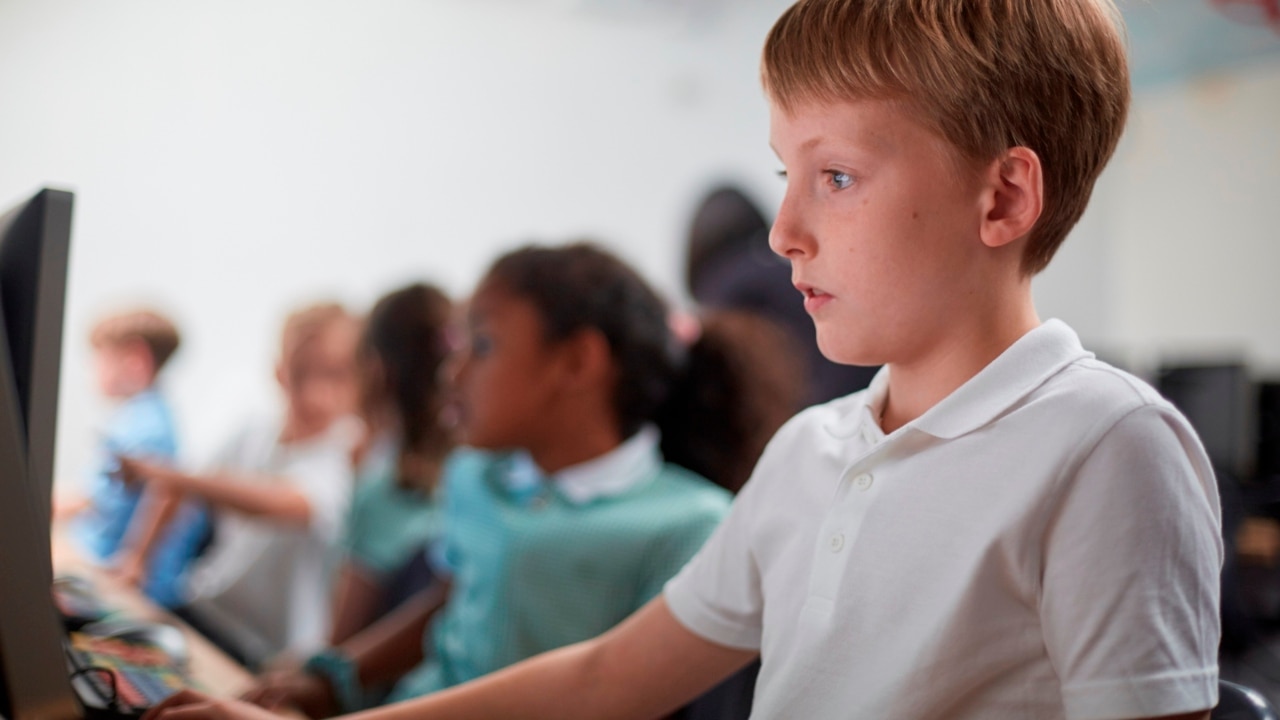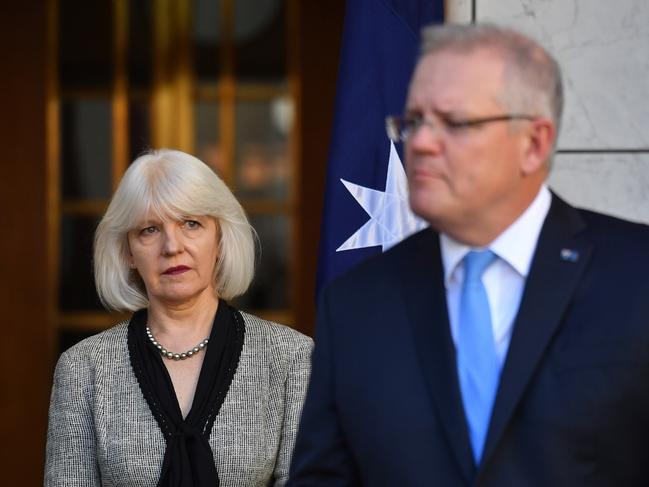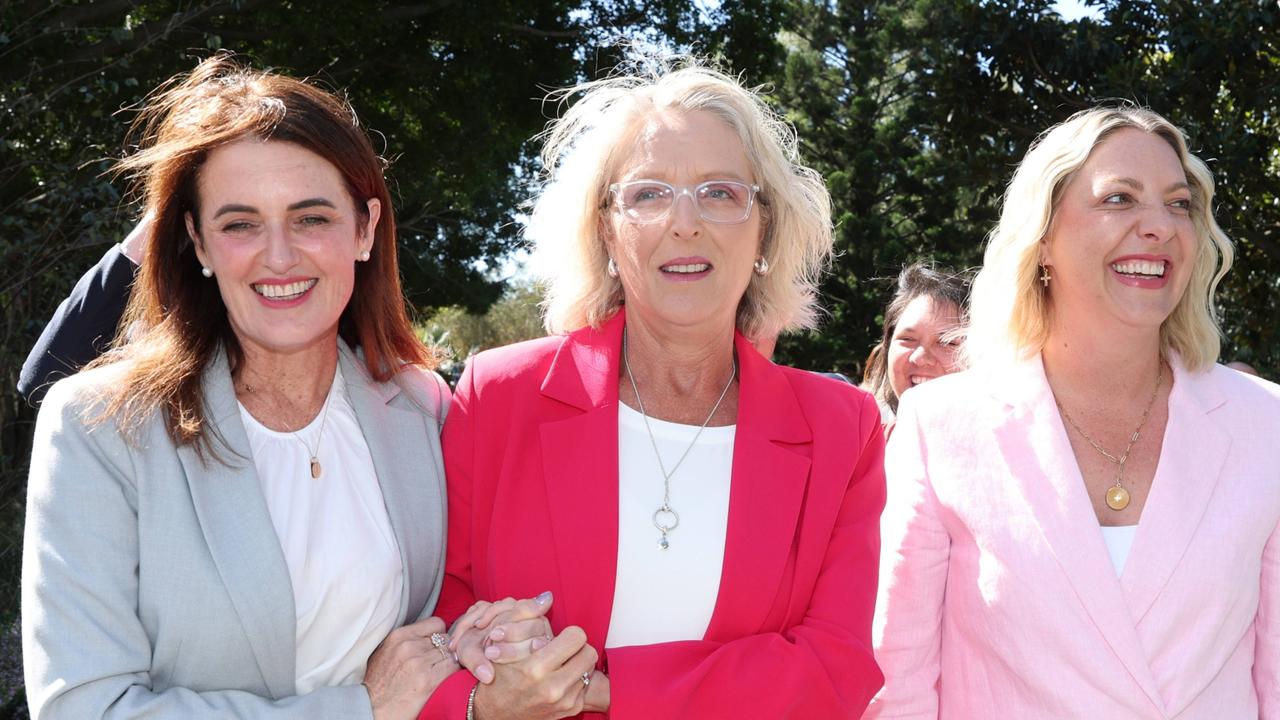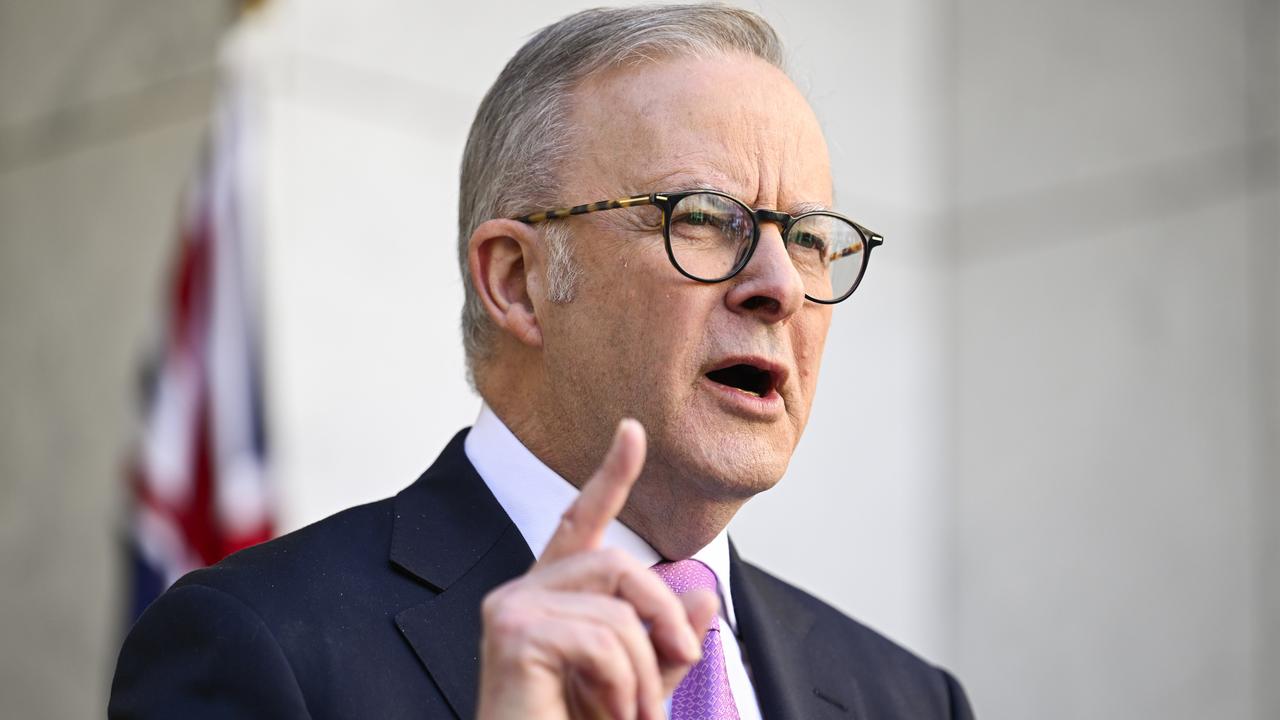Schools must ‘take pressure off’ students, warns suicide adviser
According to the National Mental Health Commission, children aged 12-17 are being impacted most by lockdowns, leaving health officials concerned over long-lasting effects.

National
Don't miss out on the headlines from National. Followed categories will be added to My News.
EXCLUSIVE
Teenagers are suffering the most stress of any age group during lockdowns and schools need to “take the pressure off’’ students, the federal government’s mental health adviser has warned.
National Mental Health Commission chief executive Christine Morgan said she was “deeply concerned for young people’’ during the Covid-19 pandemic.
“The impact seems to be hitting heaviest among 12 to 17 year olds,’’ she said.
“Presentations (to hospital) for self-harm are alarming, and mental health service (visits) for people 12 to 14 are up 30 per cent from last year.
“If you have this level of anxiety and psychological distress in your teens, that’s not a great start in life.’’
Ms Morgan – who is Prime Minister Scott Morrison’s suicide prevention adviser – said senior high school students were struggling with home schooling.
“We do need to take a bit of pressure off them because they just can’t keep going at the same rate as they did pre-Covid,’’ she said.
“It’s just not possible.
“It’s behoven on us to say, ‘What the heck are we doing to stay proactively involved (to prevent) young people dropping out, or provide support to young people in exams?’’’

Ms Morgan said pandemic panic could have long-term effects on teenagers and young adults.
“They hear the negativity and fatigue and anger in people,’’ she said.
“The first time around (during 2020 lockdowns) there were Zoom dinner parties, and people found ways to be positive.
“But now the issue of pandemic fatigue is very real.
“We came out of Christmas and started to feel better, then we’ve really been whacked with what’s happened in Sydney and Victoria.’’
Ms Morgan said teachers were also struggling with home learning.
“Schools and teachers are finding, ‘How do I keep doing this?’’’ she said.
Ms Morgan said Medicare Benefits Schedule (MBS) rebates for mental health plans were 29 per cent higher this year for teenagers, compared to last year, and were 17 per cent higher for 18 to 24-year-olds.
She said the Mental Health Commission was working on ways to increase the number of psychiatrists, psychologists and mental health counsellors.
“How do we make sure it is affordable and accessible?’’ she said.
“The bottom line is providing support for young people in schools.
“We should not be expecting young people to always have to go external (for help).
“School counsellors are critical, but are stretched to the max at the moment.’’

Ms Morgan warned that children who live in homes where “home schooling is not encouraged’’, or without access to computers or internet, could drop out of school during lockdowns.
“Young people from more challenged socio-economic circumstances can be often significantly impacted when it comes to their mental health,’’ she said.
Ms Morgan said school lockdowns were not only affecting children’s academic results, but causing mental health problems.
“School is not just about learning to read and write,’’ she said.
“They need the friendship groups and social connections.’’
Ms Morgan urged parents to talk calmly to children about their concerns with Covid-19, and link them with support services.
“If you know your child is really off their game, do not ignore it,’’ she said.
“Find a way of engaging in conversation.
“As adults, we think in shades of grey, but young people don’t – things for them are good or bad.’’
Need help?
Lifeline 131114
Kids Helpline 1800 55 1800
The National Mental Health Commission has launched a #ChatStarter campaign for parents to talk to their kids about problems during the pandemic.
How to connect with your child
Walk and talk – If you can go outdoors for exercise, walking and talking can break down barriers and help children feel less confronted than chatting face-to-face
Drive and debrief – If you can go for a short drive, this can provide a short-term escape and provide an opportunity for uninterrupted conversation and a place to calm down or clear heads.
Bake and bond – Keeping our hands busy can help someone feel more comfortable in having conversations about challenges. If you child likes baking, encourage them to choose a recipe to make together.
Relate over reels – watching some videos together may help conversation flow.

Conversation starters:
“Is there something that you’d like some help with?”
“OK, I’m here for you, what’s up?”
“I’ve noticed you seem a bit stressed, is there something worrying you?’’
Let them vent:
Children may feel alone, frustrated, overwhelmed or upset, and they just need to feel loved and supported. If you feel the urge to suggest a solution, to give them a lecture, or to try and solve their problem for them, try saying instead:
‘‘That sounds tough, do you want help to find a solution or do you just need to get it off your chest?’’
“How did that make you feel?‘’
“And then what happened?”
Allowing your child to talk through problems will give them an opportunity to use you as a sounding board. Unless they ask for your advice, encourage them to work through the problem themselves.
Where to get help
- headspace (ages 12-25) - call 1800 650 890
- Kids Helpline (ages 5-25) - call 1800 551 800
- Lifeline (24/7 crisis support) - call 13 11 14
- Beyond Blue (mental health support service) - call 1300 224 636
- Butterfly National Helpline (eating disorders) - call 1800 334 673
- 1800RESPECT (People impacted by sexual assault, domestic violence, and abuse) - call 1800 737 732
- Suicide Call Back Service (all ages) - call 1300 659 467
- Mensline (24/7 counselling service for men) - call 1300 789 978
- QLife (LGBTI peer support and referral) - call 1800 184 527
Source: www.reachout.com
National Me
Originally published as Schools must ‘take pressure off’ students, warns suicide adviser





